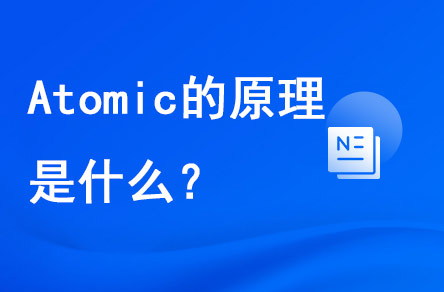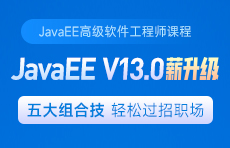Java中, atomic的原理是什么?
更新时间:2023年10月26日09时32分 来源:传智教育 浏览次数:

Java中的atomic原理涉及了Java并发编程中的一些关键概念,主要涉及volatile关键字、CAS(Compare-And-Swap)操作以及sun.misc.Unsafe等。java.util.concurrent.atomic包提供了一系列用于实现原子操作的类,例如AtomicInteger、AtomicLong等。这些类提供了原子性操作,不需要额外的同步锁,从而可以更安全地进行多线程编程。
接下来笔者演示一个简单的例子,使用AtomicInteger来说明atomic的原理。
import java.util.concurrent.atomic.AtomicInteger;
public class AtomicExample {
public static void main(String[] args) {
AtomicInteger atomicInt = new AtomicInteger(0);
// 增加操作
int incrementedValue = atomicInt.incrementAndGet();
System.out.println("Incremented Value: " + incrementedValue);
// 减少操作
int decrementedValue = atomicInt.decrementAndGet();
System.out.println("Decremented Value: " + decrementedValue);
// CAS操作
int expectedValue = 0;
int newValue = 10;
boolean updated = atomicInt.compareAndSet(expectedValue, newValue);
System.out.println("CAS Updated: " + updated);
System.out.println("Current Value: " + atomicInt.get());
}
}
在上述代码中,AtomicInteger被用来维护一个整数,它提供了incrementAndGet和decrementAndGet方法,这些方法是原子的,可以安全地增加或减少值。此外,我们使用了compareAndSet方法,这是CAS操作的一种形式,它会比较当前值是否等于expectedValue,如果相等,则将值更新为newValue。如果操作成功,compareAndSet返回true,否则返回false。

AtomicInteger的原子性操作是通过底层的CAS指令实现的,这使得多线程可以在不引入锁的情况下安全地操作共享的变量。
总结一下,atomic原理涉及使用底层的CAS操作和volatile关键字来确保线程安全。java.util.concurrent.atomic包中的原子类提供了一种更高效和安全的方式来进行多线程编程,而无需手动管理锁。


















 AI智能应用开发
AI智能应用开发 AI大模型开发(Python)
AI大模型开发(Python) AI鸿蒙开发
AI鸿蒙开发 AI嵌入式+机器人开发
AI嵌入式+机器人开发 AI大数据开发
AI大数据开发  AI运维
AI运维 AI测试
AI测试 跨境电商运营
跨境电商运营 AI设计
AI设计 AI视频创作与直播运营
AI视频创作与直播运营 微短剧拍摄剪辑
微短剧拍摄剪辑 C/C++
C/C++ 狂野架构师
狂野架构师





















